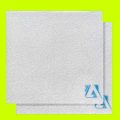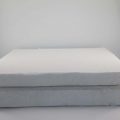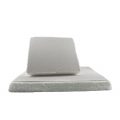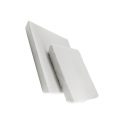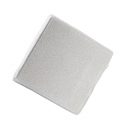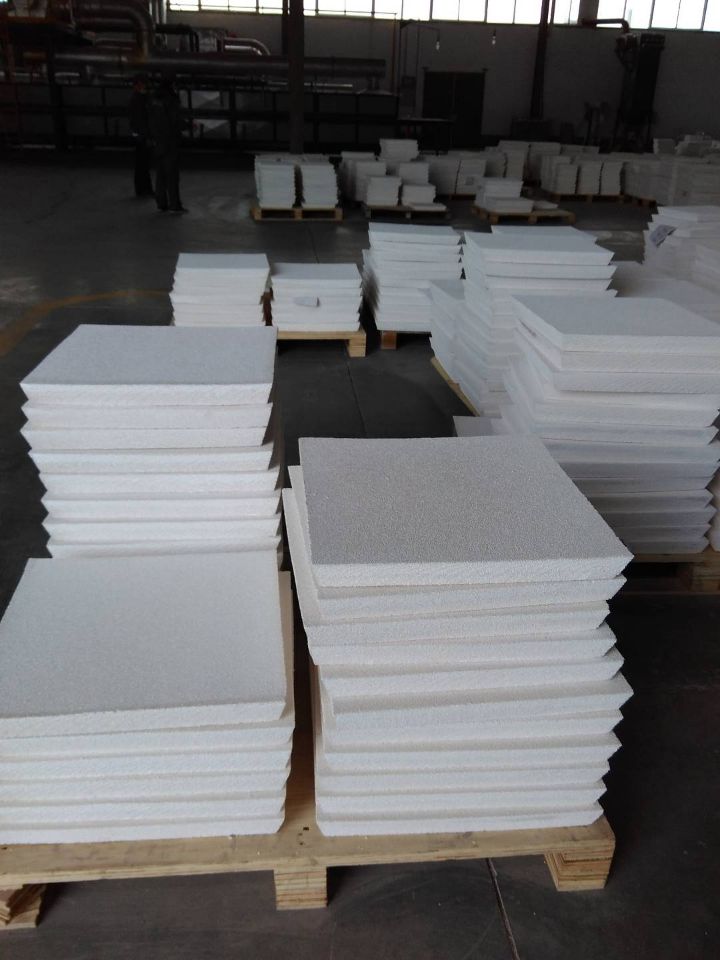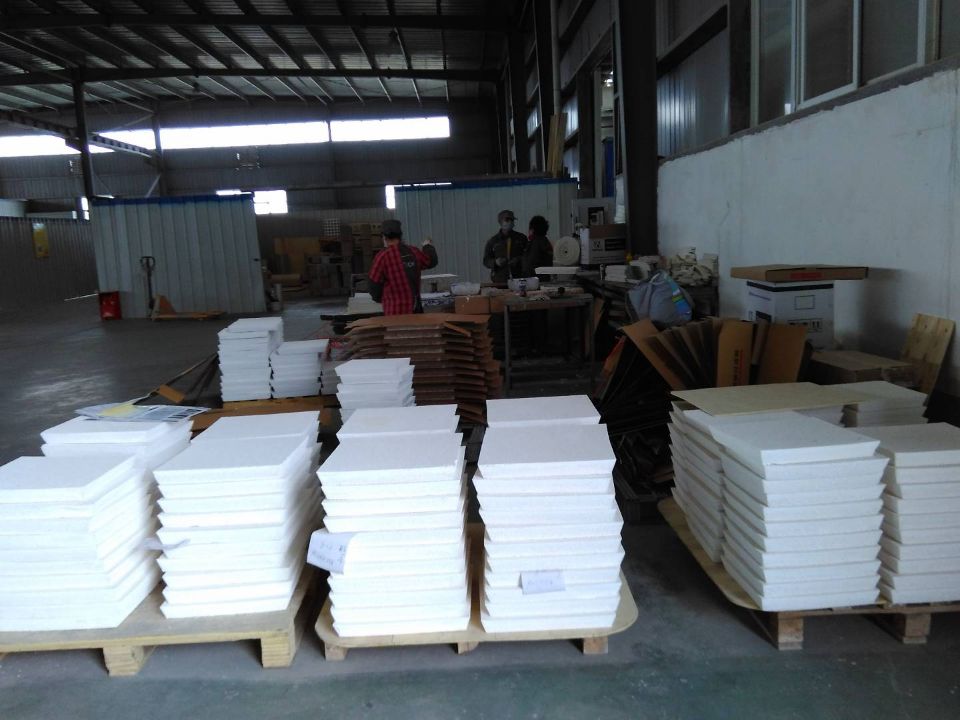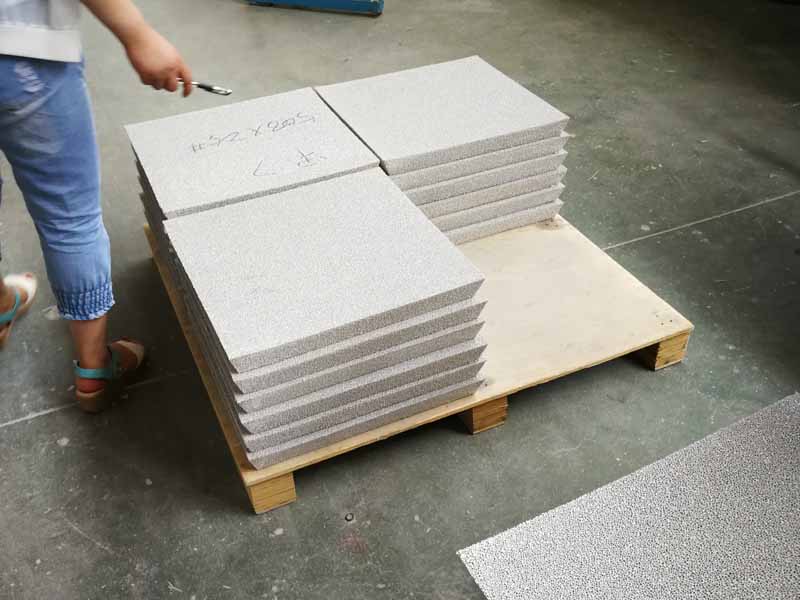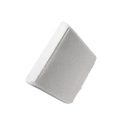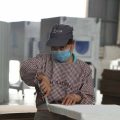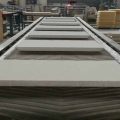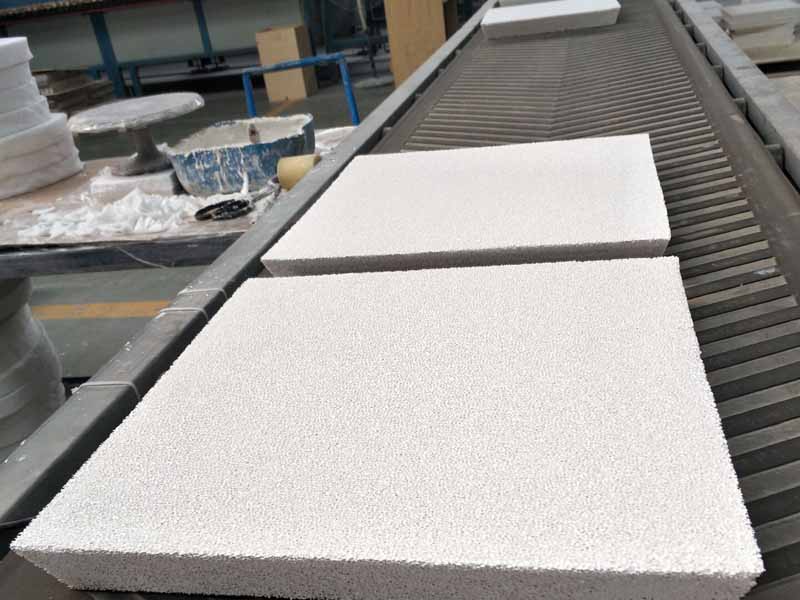Porous Ceramic Foam Filtration is used to produce high-quality aluminum plates, aluminum foils and other castings.
It can effectively remove the inclusions in the liquid aluminum through physical adsorption and chemical adsorption, thereby eliminating the defects of the casting, improving the quality of the casting, and providing excellent materials for further processing.
Porous Ceramic Foam Filtration can be used to remove oxides and other inclusions. Ceramic Foam Filtration is a white or milky white honeycomb ceramic filter.
Ceramic foam filter Dimension
660x660x50(26 inch)
584x584x50(23 inch)
508x508x50(20 inch)
432x432x50(17 inch)
381x381x50(15 inch)
305x305x50(12 inch)
228x228x50(9 inch)
178x178x50(7 inch)
Ceramic foam filter Pore Size (PPI): 10/20/30/40/50/60
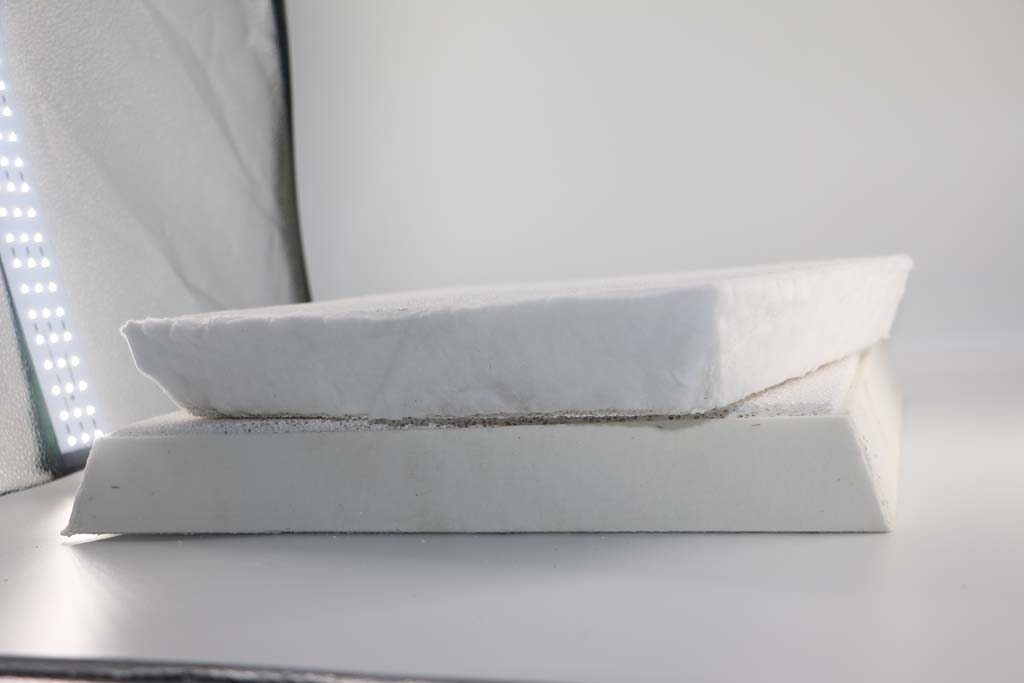
The filter should be preheated before use, and the filter should be completely sealed in the filter box to ensure that all liquid aluminum flows through the filter, and the total amount after infiltration should not exceed the limit of the ceramic foam filter.
If there is too much slag in the liquid, more debris or reduce the total amount of percolation to adjust.
Correctly choose Porous Ceramic Foam Filtration to improve the cleanliness of aluminum melt
1. The selection of the ceramic foam filter board is first determined according to the impurity content in the aluminum melt and the transfer flow rate of the melt to the quality requirements of the final cast product.
There are many impurities and the quality of the cast products is average. A foam ceramic filter plate with larger mesh can be selected, and a glass cloth coarse filter is added in front of the filter plate. At this time, it is important to filter the semi-continuous casting with glass cloth first. It can intercept the slag that is scoured when the eye is opened and the slag washed down by the launder to prevent clogging of the filter plate.
The quality requirements of the casting products are high, and the new type of ceramic foam filter with small pore meshes, that is, large meshes, is selected to achieve the ideal cleanliness and obtain good results.
The selection of filter plate specifications is determined by the flow rate and total throughput of the melt. If the flow rate is large, the total throughput is large, and the filter plate has small holes, a larger size is used.
2. When choosing a filter plate, you should also watch the color, take pictures and burn the objects.
The color is pure and free of impurities, which means that the material is uniform; if the hands are not sticky, it means that the surface is not sprayed with adhesive and will not cause secondary pollution.
Hold the filter plate with one hand, and clap the filter plate with the other hand, and continuously drop the ceramsite slag, indicating that the filter plate is inferior and will cause damage.
Into secondary pollution aluminum liquid.
Use an open flame or electric heating to heat up and burn to red and immediately cool at room temperature without cracking or slag, indicating that it is a good filter plate.
3. When purchasing filtration, carefully evaluate the effective specific surface area or porosity calculation of the foam. You can observe the uniform state of the mesh on the surface of the filter plate, and then open it to observe the uniform state of the mesh on the section.
If possible, the porosity can be calculated by the drainage method. The three-dimensional mesh is homogeneous and the porosity is relatively large. It is an excellent foam ceramic filter plate.

